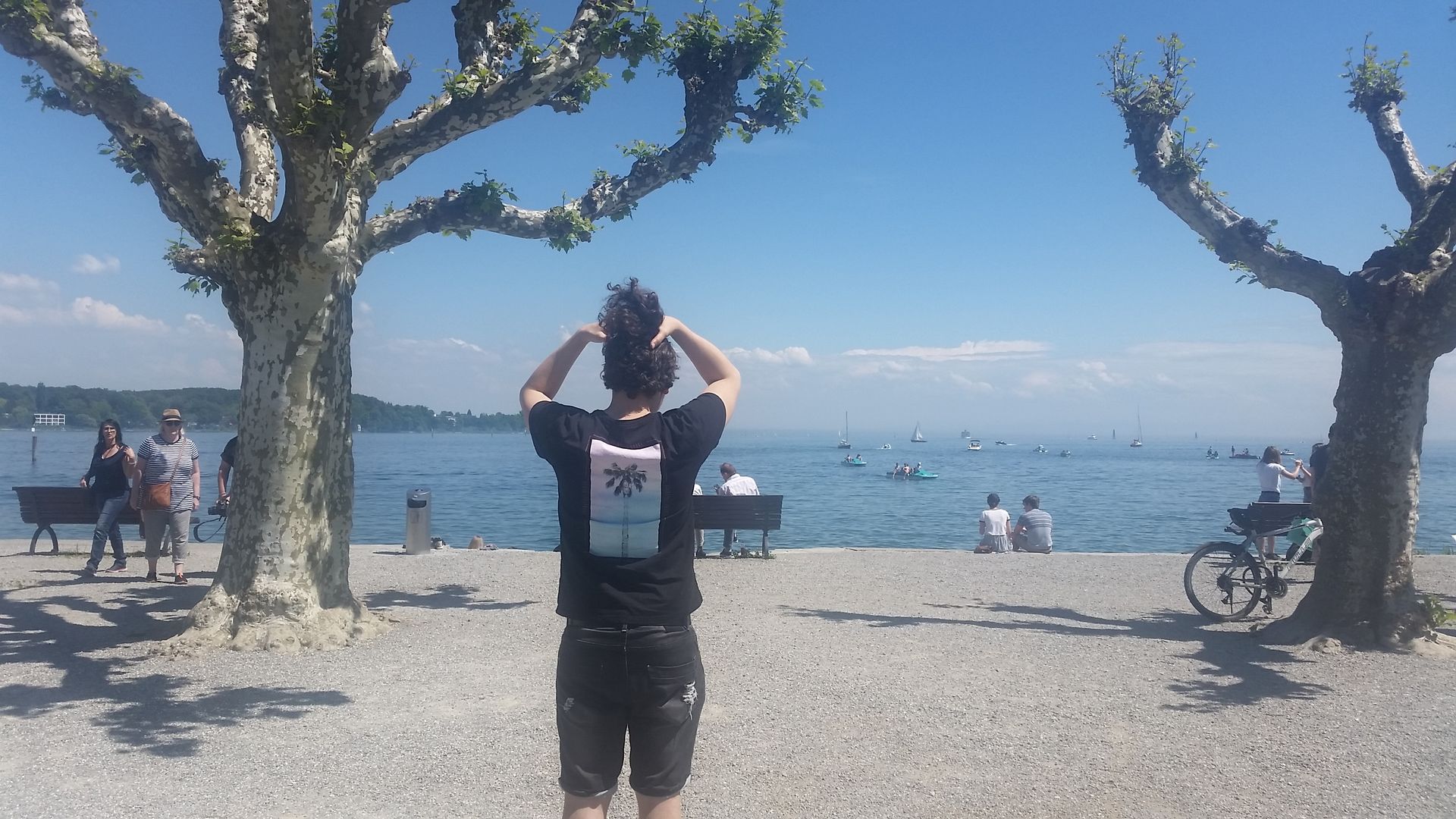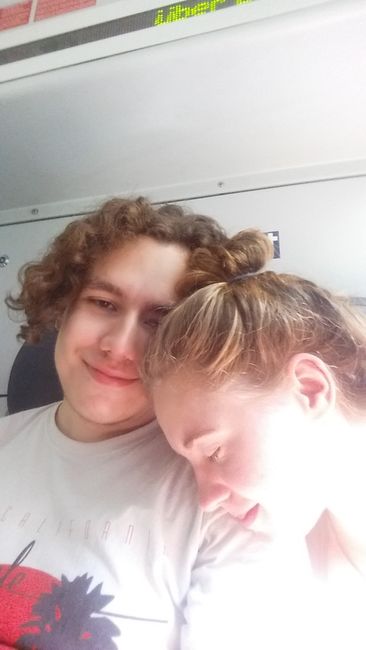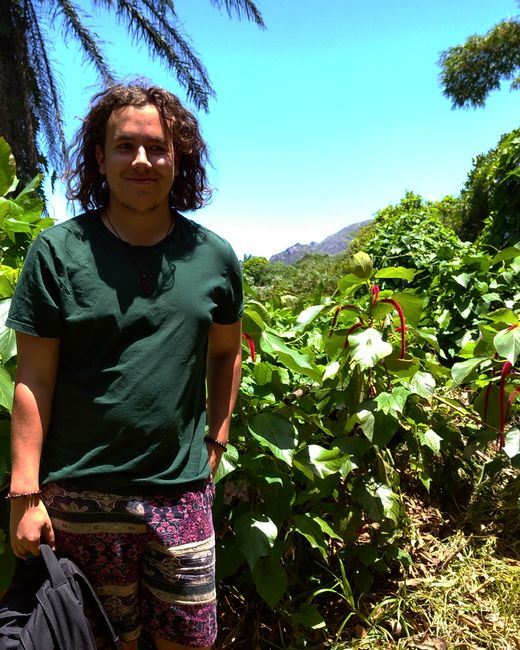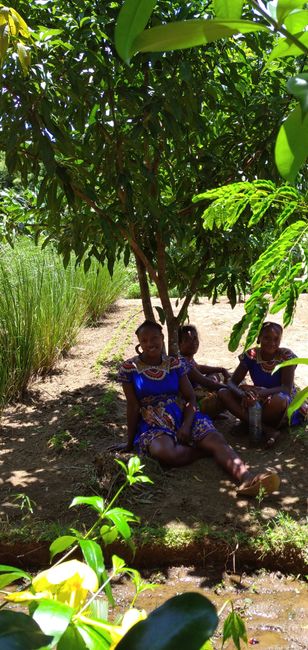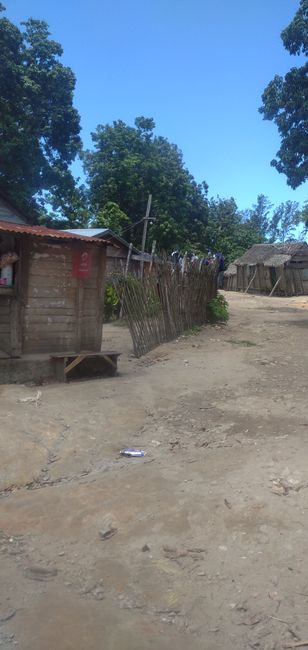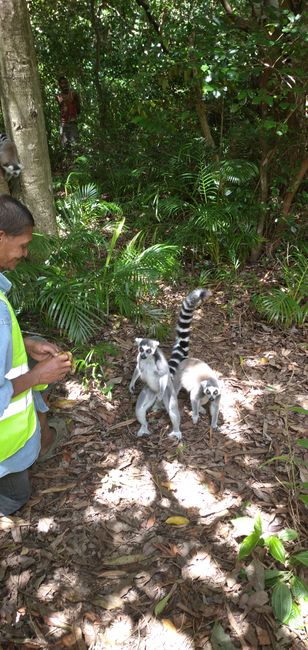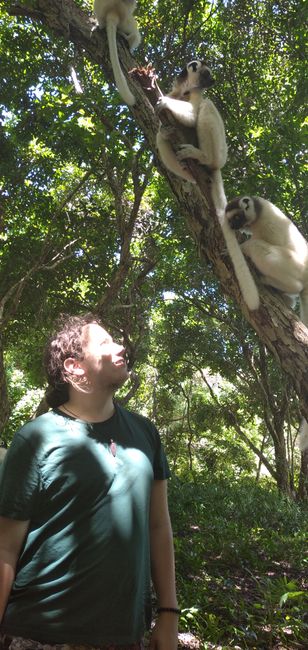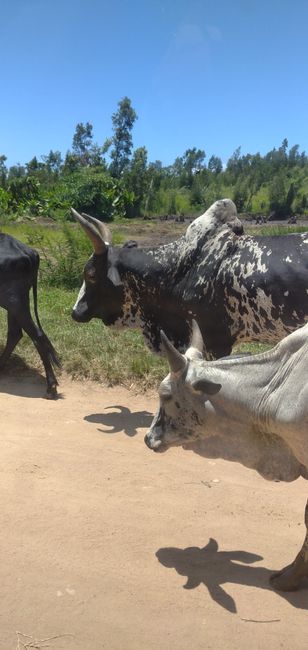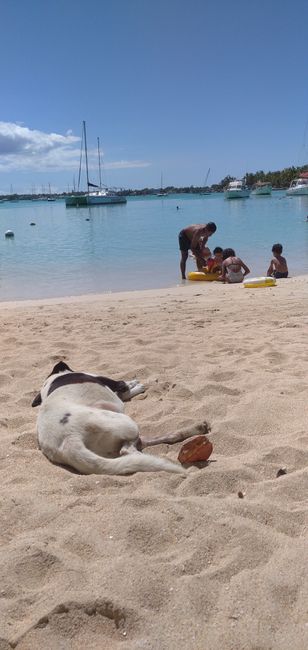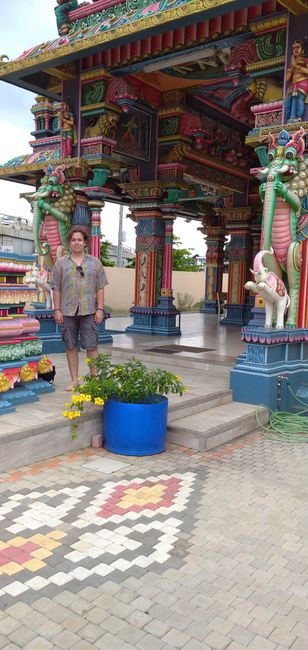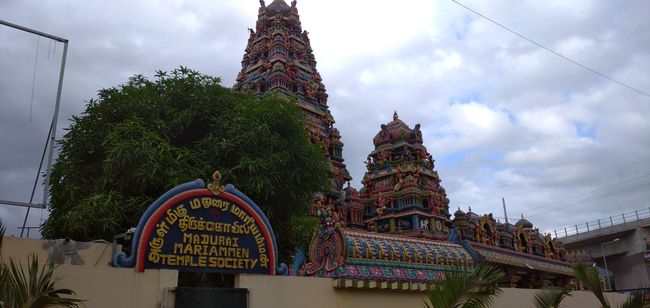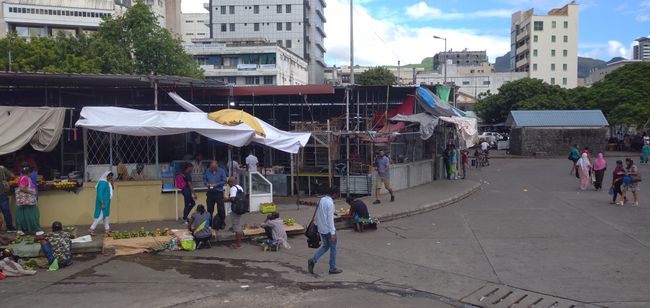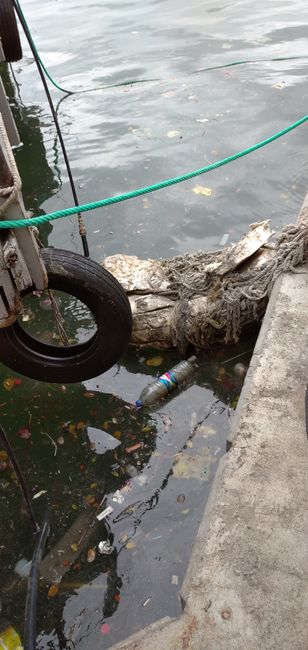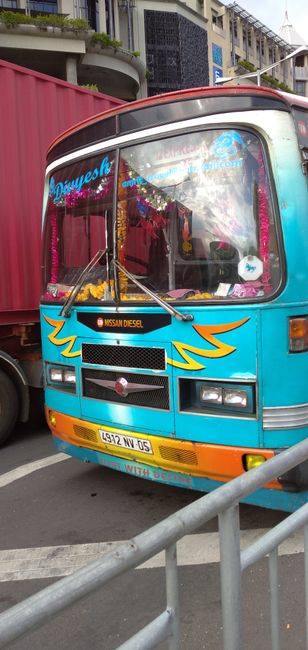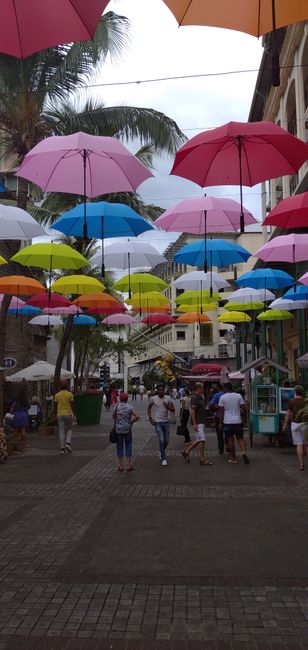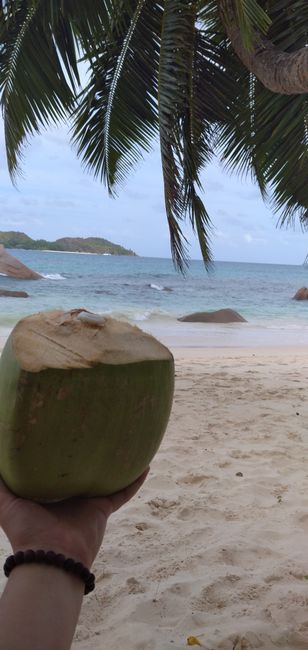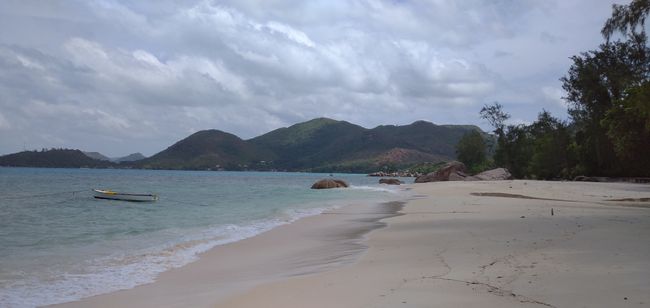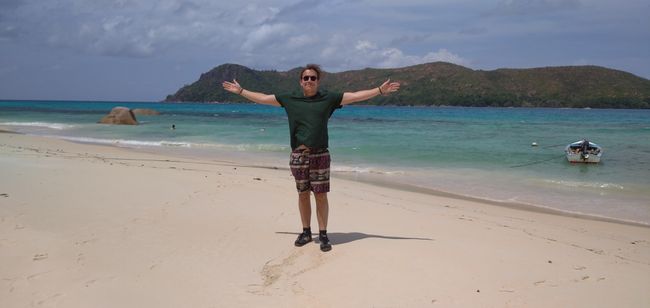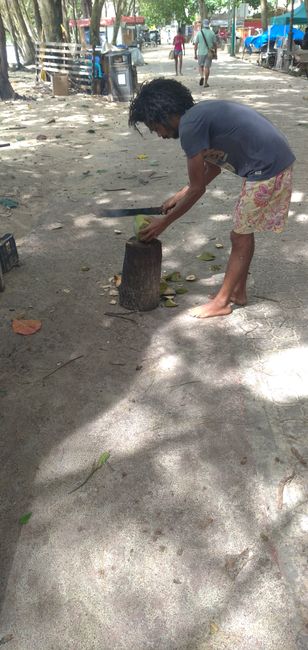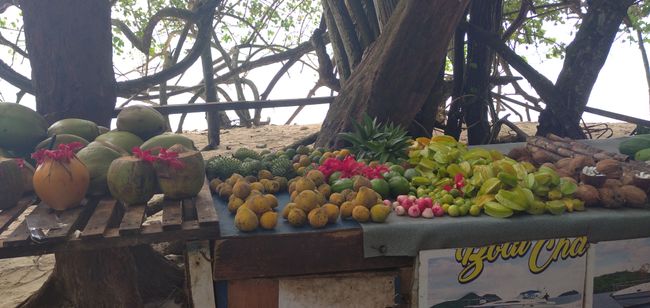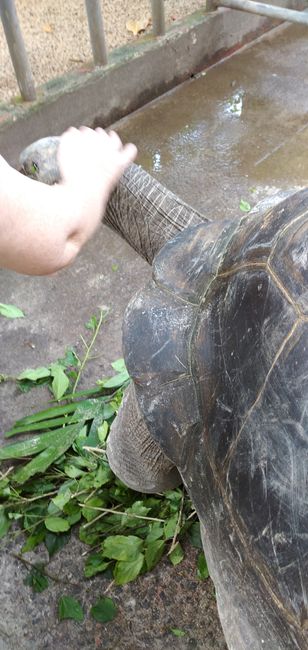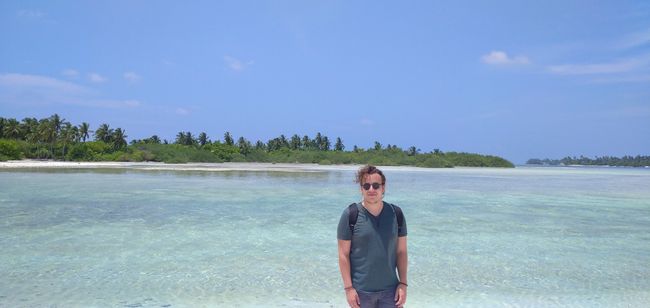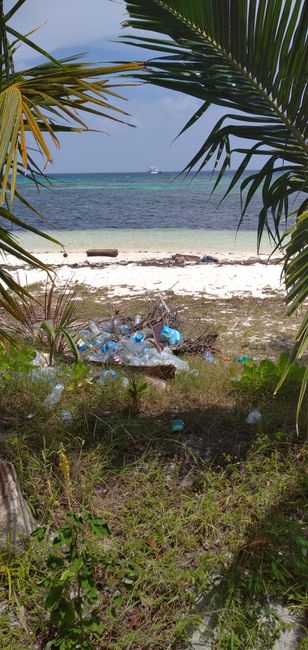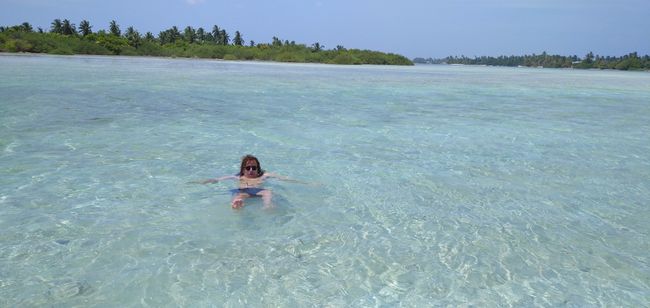Islands in the Indian Ocean
게시됨: 11.02.2020
뉴스레터 구독
Dear people,
I have had some exciting days behind me and also 2/3 of my trip overall.
I would like to start with Madagascar, my first stop in the Indian Ocean.
I have to say that I was only on land for about 7 hours. But within this time, I saw and experienced a lot. First of all, Madagascar is definitely the poorest country financially that I have been to so far (and as far as I know, it will remain that way for the time being).
Nevertheless, I had the feeling that the people are quite happy. What I saw seemed very clean to me compared to other African places, even though some people live in straw huts. The people live more like you would imagine if you were to move to a deserted island: simple but cozy. I didn't see any trash. Anyway, we walked through a small safari park with a guide and I was able to observe typical Madagascan animals such as lemurs.
I also saw many children, sometimes 10 of them running after me or simply sitting next to me. Of course, they also wanted money or something similar, but it was definitely not uncomfortably pushy or unsympathetic. They were happy with everything they learned from Europeans, and they didn't have any hatred or dislike towards Western visitors. But of course, children are taught from the beginning that Europeans bring money. And that's true.
I taught a little Madagascan boy the numbers in English and German, and he was really happy. Madagascar is a very exciting country, which I can definitely recommend based on my impressions!
Next was La Reunion, an island that is part of France and therefore also EU territory. We were here twice. I heard very nice things about the island, but unfortunately, I didn't take any trips, so I can't say much about the nature. The volcanic landscape is said to be incredibly beautiful. I called my relatives a lot here since it was possible again :). Culturally and economically, the island is identical to normal France in Europe, so the difference to the only 700 km away Madagascar was enormous.
In between, we went to Mauritius for 3 days. Mauritius is heavily influenced by Indian culture and is known as one of the most beautiful islands in the world. Nevertheless, the harbor in Port Louis is filled with garbage. The capital appeared relatively dirty to me, even though I find the culture very interesting, as Indian, African, Chinese, and European cultures converge. Unlike South Africa, the separation between different cultures is less drastic, it is very multicultural. Of course, I also went to a beach, but I can't say much about it: very beautiful, like the South Seas, but not exactly what I had imagined. It was cute, though, that the stray dogs lay directly on the beach and chilled there.
Now we continue to the Seychelles, and yes, here is really a lot like in a picture book (at least if you have good weather): white beaches, light blue water, and coconut palms, whose coconuts you can get freshly picked and served on the beach.
But the island also has very beautiful green mountains, which are certainly good for hiking. Culturally, the Seychelles strongly resemble Caribbean islands, with a slight South Asian influence. Reggae is listened to by many residents, and hairstyle-wise, the residents reminded me a lot of Jamaica (or my idea of Jamaica).
The last previous stops were the Maldives. I could only see very little. I was briefly outside on the island Gan because it was too wavy later to get to land in the capital Male (I was supposed to go on a submarine tour). In general, I was already warned that the Maldives are very contradictory because on the one hand, there is a large Western tourism (including artificial beach resorts for tourists, especially for honeymoons), but on the other hand, on the normal islands, parts of the Sharia law apply, and women are not allowed to dress in bikinis or are only allowed to bathe with their bodies covered. So the local police regularly drove by the beaches to check this. In addition, alcohol is prohibited on the normal Maldivian islands. The water was, of course, light blue, but unfortunately, there was a lot of trash on the beaches. This may be different at luxury resorts and tourist islands.
So now a few sentences about life on board:
By now I am part of the ship's crew and have to participate in regular rescue exercises and other things. I also wear a life jacket and a crew cap. Everyone is assigned a position, which also applies in an emergency. Because I speak German, I have more to do with the passengers. Of course, there are certain rules that everyone has to follow, so alcohol checks occasionally take place. I should also have knowledge about the lifeboats or emergency signals (e.g. Code Oscar means man overboard). In general, there is quite a lot to consider, so I had to take a short course before my trip.
Yes, there are colleagues I get along well with and others I don't get along with at all (unfortunately, I have a lot to do with some of them). But I get along well with my other sound technician colleague. We also occasionally go to the crew bar in the evenings, which is very relaxed and offers cheap beer. Lately, I have been meeting often with a Filipino colleague there, who supports his family with a cleaning job on board and has not seen them for 7 months. It is very interesting to talk to him about cultural habits.
So people, I think that's enough for now. I am looking forward to my upcoming stops in Sri Lanka, Malaysia, Indonesia, Singapore, and ultimately Australia. I hope I can stay in Sydney for a few more days, which is still unclear at the moment. In any case, I will be disembarking on March 13th. For all the people from Berlin, be prepared that I will be doing a 'Welcome Back' round on the 20th or 21st of March (maybe at Baiz or something).
Best regards
Your Willi
뉴스레터 구독
답변
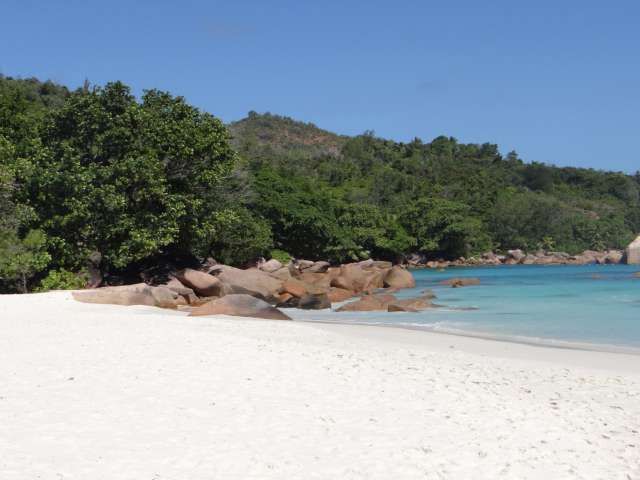
세이셸 여행 보고서
